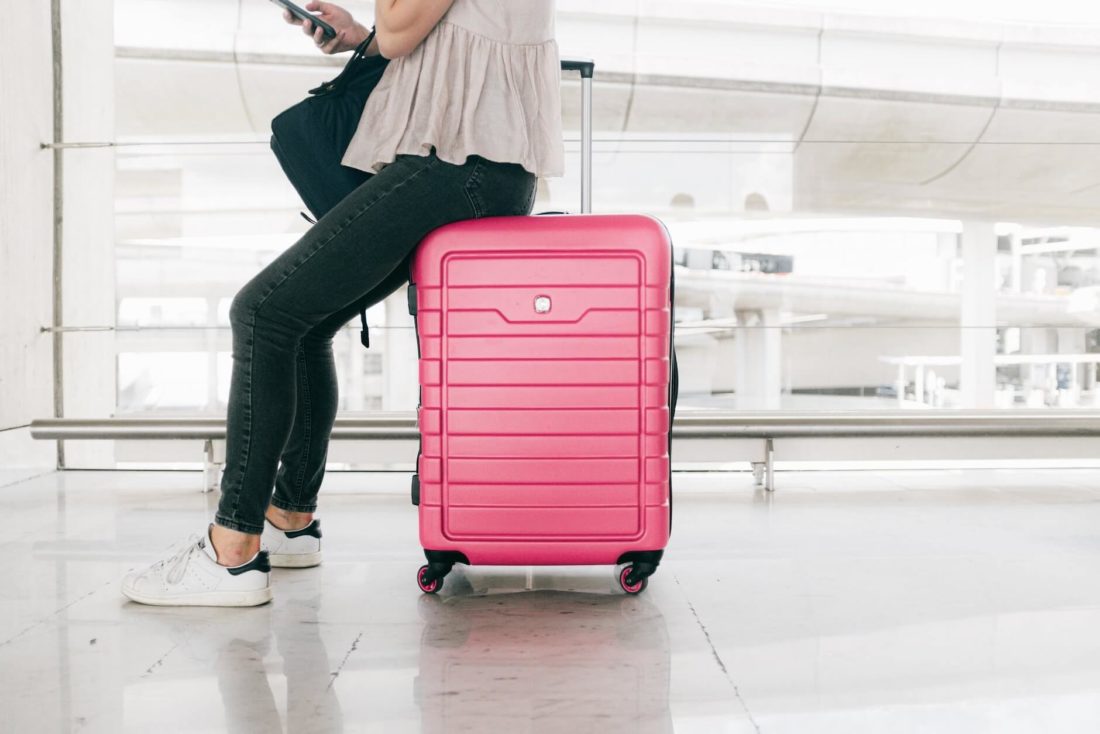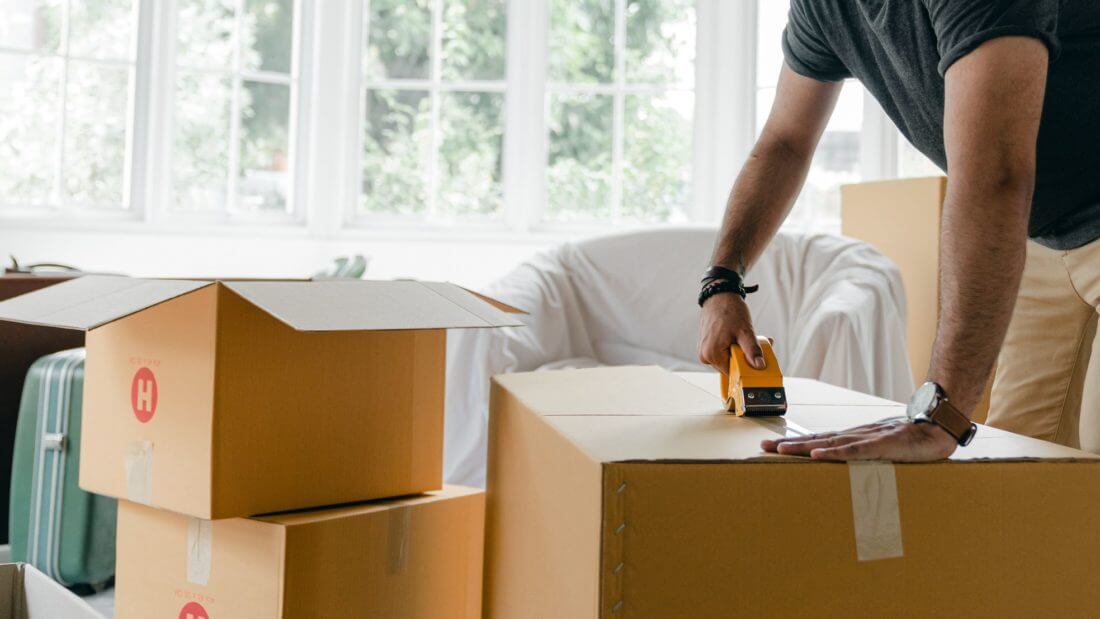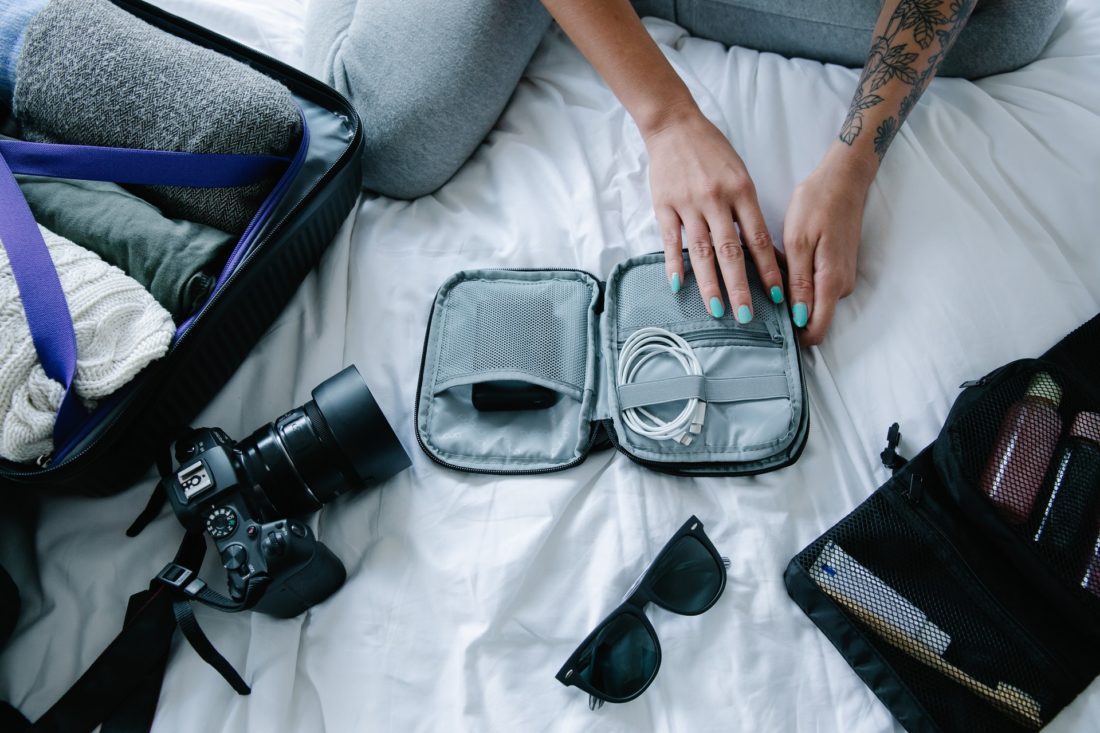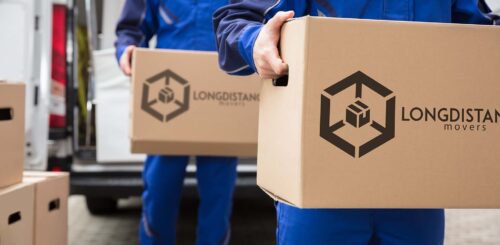Relocations are always demanding but can also be a chaotic and exhausting experience if you are not well organized. In situations like this, you can easily overlook some of the moving essentials you’ll have to bring with you on a big day. You probably have a vague idea of what to bring but it’s best to create a thorough list.


Did you know that household moves typically include about 6,500 pounds worth of stuff? Naturally, you don’t want your long-distance moving necessities to get lost among all the things. Even if you are tired of the whole relocation process, there are probably many things on your to-do list you must finish. If you put in some effort to create a thorough list of necessities, it will help you to make your relocation day a breeze.
How To Make a Moving Essentials Checklist
Before we start about what moving out essentials are, we should let you know that this list can differ depending on your needs. For instance, if you are relocating with cats or indeed any other pets, your bag of necessities will be different. But some of the things are the same and can apply to everybody. These are the basic things vital to surviving the first few days in your new home, while there are some things you will have to keep with you all the time (during your trip and after.)
But First Thing’s First – Start on Schedule
Besides arming yourself with a survival kit, preparing everything on schedule will save you from a lot of hassle. Many companies provide various types of services to their customers, so investing in different solutions by cross-country movers several weeks before the relocation will keep the stress levels at bay. Keep in mind that there are no “long distance movers near me,” which you can Google that will do everything for you. Taking care of necessities is something you should do on your own, so arm yourself with a thorough list, and begin up to eight weeks ahead.
How Long Before Moving Should You Start Packing?
You don’t have to package everything right away, but at least you can create a checklist and an inventory list to follow when you begin with work. It is a rule that if you are relocating the entire house, it will take a couple of weeks if you wish to do everything right.
This way, you’ll have time to donate unwanted appliances or prepare and organize a garage sale. Even if you are relocating at the last minute, you will have to place your stuff into packages. On these occasions, it is good to take a storage unit to put your belongings in it until they are ready to be shipped to your future address.
Get Your Hands on Sturdy Boxes and Protective Materials
What are the essentials for moving out for the first time that you should initially buy? Obtaining good-quality boxes and packing supplies on time is one of the most critical parts of a stress-free move. To be well packed, you will need boxes and protective materials. So here is a list of things you have to acquire:
- High-quality, sturdy boxes are a must-have for any relocation. You will need them in all sizes, but ensure you mostly get the medium-sized ones, as most of your belongings will fit into them.
- Bubble wrap, foam peanuts, and packaging paper are needed for cushioning. Most of your items will need to be protected from shifting inside a box, so cushioning and filling in the gaps will help you reduce it. These are the basics for packing your fragile items, but you can use newspapers, towels, and rags as well.
- Plastic wrap, while not crucial, will help you secure already cushioned things. You can even use it to wrap drawers on a dresser or other furniture pieces without taking the contents out.
- Heavy-duty packaging tape and a tape dispenser are vital for sealing the lids of each package. The sturdier tape will ensure that there are no nasty surprises while the boxes are carried.
- Scissors and a marker will come in handy to level up your packaging game. If you don’t have time to label each package, you can buy already printed labels for each room, or you can purchase colored stickers as well.
If you don’t require large quantities, you can always try to get some cheap relocating supplies. You can even get your boxes for free, just go to your nearest grocery store and ask them to give you some (they are throwing away boxes each day.) Also, some more professional protective materials can be replaced with items from your home.
If You Want to Protect Your Stuff in a Proper Way, Follow These Simple Rules
You should also know how to put your stuff in the package the right way if you wish everything to arrive in one piece to your future home. Use protective material on every fragile item. If you don’t have any other cushioning, you can use paper or towels.
Start packing from the room you rarely use, like the garage or basement, then go with the other rooms. Also, first package the things you don’t use, like winter clothes if you are relocating in summer and vice versa. Put dishes vertically, not horizontally, and you’ll save some space in your package and minimize the chances of breaking. Don’t forget to put smaller items in your pots so you can save some space.


Essential Stuff You Will Need For the First Day
Pack the overnight bag like you are going on vacation. You will need these items for at least a couple of days after your move until you unpack everything. Bring your pajamas, toothbrush and paste, hygiene products, underwear, sleepers, and something to change.
If you are moving in with your boyfriend or with your girlfriend, pack something nice to wear, in case you two are in the mood for a romantic dinner. And if you are relocating in winter or even relocating to a colder climate, don’t forget to bring something warm to wear.
Also, bring some bags of tea or coffee. It wouldn’t hurt to make yourself a hot beverage when you get to your future home. If you are relocating with kids, don’t forget to bring their favorite toys or books, and a change of clothes, too.


Your Checklist of Move In Essentials Should Contain a Few Easily Misplaced Basics
As we mentioned above, your list of necessities will have to be adapted to your specific needs. So take some time and start making a list days before your move. Do this simultaneously with making your home inventory list. Here are some things you shouldn’t overlook to put in your bag of necessities:
- Keys,
- Documentation and other important papers,
- Medications,
- Any special nutrition for a family member,
- Wifi router,
- Chargers and internet cables,
- Food for your pets,
- Container and bed for your pets,
- First aid kit.
If you are relocating elderly parents out of state, you will have to think about flying with prescription medications. You will have to prepare their medical documentation and have it on you in case of a medical emergency.
A Few Moving Out Essentials You Will Need from the Kitchen
When you arrive at the new location, you will require some kitchen items as well. So when you start packing your dishes, make sure to put some plates (one for each family member) aside for your box of necessities.
Also, set aside some forks, spoons, and knives. When it comes to washing these dishes, bring some dish soap. One of the best relocating hacks that will be handy for packing liquids for relocation is to put them in zip lock bags. You can do this with your dish soap, so the bottle doesn’t take up too much of your space in a box.
Take a pan that can be used for things like cooking and frying and place it with other necessities. Avoid some of the common moving mistakes of forgetting to bring some spices, and escape eating tasteless food along the way. Bring some mugs, too, because they are a better solution than glasses. You can put hot and cold beverages in them, and the chances of breaking are minimal. But if your box is already full, buy some paper cups.
Prepare Your Essential Toiletries
One of the most commonly forgotten things to pack is, believe it or not, toilet paper. In all that mess, people tend to forget things they usually always have at home. So pack your toilet paper, soap, shampoo, and shower gel. If you have half-empty bottles at home, don’t throw them away, just pour the content into some zip lock bags, and you are good to go or put that plastic wrap to use by sealing each bottle with it under its cap. Make sure you bring some towels as well.


Relocating With a Newborn? Stock Up On Baby Supplies
Relocations can be stressful, and if you are relocating with a newborn, your anxiety about relocating to another state can be pretty high. But don’t worry – a lot of Americans are relocating when they get a baby. Of course, with a bit of help from a long-distance moving company and their relocating services. But even with all the help with different services, you will still have a lot on your plate. Even if you take a full packing service, you will still have a trip with an infant ahead of you. Be sure you’ve packed enough diapers and changes of clothes for the whole trip.
Check out this video for more tips on relocating with a baby.
What Are the Necessities When Long-Distance Moving Into a Brand New Apartment?
The move-in essentials for the place you’ll be living in soon include several things. A small tool kit that contains screwdrivers, scissors, box cutters, duct tape, hammers, flashlights, and nails is something you shouldn’t enter your future place without. All of those will come in handy while unpacking.
Prepare Your Home Cleaning Supplies
One of the first apartment necessities and stuff crucial to settle in properly are the cleaning supplies. When your cross-country movers unload and unpack everything, you want to clean everything up before putting your stuff into its place. Take some cleaning sponges, rags, garbage bags, and universal cleansers, and dust off everything in your new place. This is why it would be good if you could come to your new house before you contact long-distance movers to bring your belongings, in order to clean everything.
And Don’t Forget the Long-Distance Moving Essential Services on Your Checklist
Alongside all the necessary items, you will have to transfer your utilities first, in advance, so you don’t end up at your new place without electricity or water. If traveling by plane, make sure you ship your car early. Even though auto transport services are fast these days, you’ll still have to coordinate your arrival and car. Also, don’t forget to update your address with USPS, and other essential services.


Take Care of Everything Essential, While the Long-Distance Movers Do the Rest
If you wish to have a stress-free relocation that will be efficient, the best option is to contact and hire a cross-country moving company. Make sure you book Long Distance USA Movers on time to do the things we discussed. You may think you can relocate on your own, but in our experience, this doesn’t pay off in the long run. Not only will you be tired, but you will also have to take days off work. With our professional long-distance movers on your side, you can sit back and relax and wait for your belongings at a new destination.
Frequently Asked Questions About Moving Essentials
What Should Be Included in a Moving Essentials List?
A moving essentials list should include items such as boxes, packing tape, bubble wrap, markers, furniture pads, a dolly, tools for disassembling furniture, cleaning supplies, and personal items such as toiletries, bedding, and clothing. It’s also important to make sure important documents and valuables are packed securely and easily accessible.
What Items Should I Pack First When Moving?
When packing for a move, starting with essential items you’ll need right away in your new home such as toiletries, cleaning and bathroom supplies, phone chargers, clothing, and bedding is best. Pack these items at the top of each box or bag so they are easy to access when you reach your destination. Make sure all boxes are clearly labeled so they can be easily identified once you arrive.
What Are the Most Important Things to Bring With You When Moving?
When moving to a new home, it is important to bring essential items like clothing, toiletries, bedding, and kitchenware. Additionally, documentation such as a driver’s license, passport, and other necessary paperwork shouldn’t be forgotten. You should also ensure that any valuables are securely packed into boxes and transported along with you so they can be easily accessed when needed. Other helpful items include a toolkit for basic repairs around the house and cleaning supplies for keeping your new space tidy.
How Can I Make My Move as Stress-Free as Possible?
Making your move as stress-free as possible requires careful planning and organization. Prioritize getting things done early to avoid last-minute rushes, create a schedule to stay on track, ask friends and family for help when needed, use suitable packing materials, label all the boxes clearly with contents and destination room, and enlist professional cross-country movers if possible. Taking these steps can help make your move more organized and less stressful.
What Are the Best Packing Tips for Moving?
The best packing tips for moving out essentials include taking an inventory of items to be moved, gathering appropriate packing supplies, labeling boxes with contents and destination room, disassembling furniture as much as possible, securing fragile items in protective padding or bubble wrap, and filling any empty spaces in boxes with newspaper or packing peanuts for greater stability. Take extra care when handling antiques and other valuable possessions.
What Should I Do With Items I Don’t Want to Move?
If you have items that you don’t want to move, consider donating them to a local charity or thrift store. You can also try selling some of the items online, hosting a yard sale, or giving them away to family and friends. Alternatively, you could rent a storage unit for short-term use until you decide what to do with the item.
What Items Should I Not Pack When Moving?
When moving, it is best to avoid packing any flammable materials, explosives, food items that can spoil quickly, and anything perishable or hazardous. You should also not pack items of sentimental value or legal documents. It is important to secure these items in a safe place instead of packing them during the move.
How Can I Make Sure My Items Arrive Safely at My New Home?
Ensure your items arrive safely at your new home by using a reliable and reputable long-distance moving company that has experience in handling delicate items. You should also properly pack any fragile or valuable items with protective materials like bubble wrap or packing peanuts before shipping them, and you can choose express or overnight delivery for added security. Additionally, be sure to check any insurance policies offered by the moving company in case of damages or losses.
What Are the Essential Tools I Need for a Move?
The essential tools needed for a move include packing boxes and other containers, tape, permanent markers, an appliance dolly or hand truck, blankets or bubble wrap to protect furniture and fragile items, box cutters, and scissors. You may also need packing materials such as newspaper and paper towels to cushion fragile items.
How Can I Stay Organized During the Moving Process?
The best way to stay organized during the cross-country moving process is to create a timeline and checklist of tasks. Include items such as packing, scheduling cross-country movers, changing your address with utilities and post office, coordinating with storage units or selling furniture if necessary, and sorting out travel arrangements for yourself and your pets.
It will help you keep track of all the tasks that need to be done and ensure nothing falls through the cracks. Properly label all boxes so it’s easier to unpack them at the new destination. Finally, make sure you take rest breaks along the way in order to reduce stress levels.






